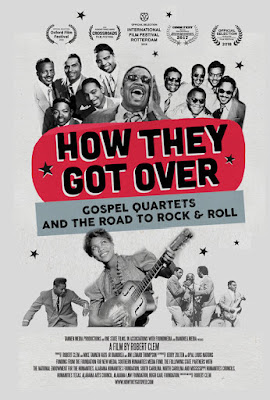It became the music of the Church, but it developed out of elements that came from the old devil blues and the sinful nightclub music that was jazz. Eventually, gospel influenced jazz in return, with the rise of Soul Jazz and spawned Soul music through its fusion with R&B. Gospel music became a revered institution, yet it continues to evolve, in ways writer, host, and executive producer Henry Louis Gates chronicles in the four-part Gospel, which airs Monday and Tuesday on PBS.
Technically, it did not all start with former (or reformed) blues musician Thomas A. Dorsey, because gospel evolved out of traditional spirituals, but he was its W.C. Handy. Dorsey wrote and promoted many of gospel’s original classics. Rev. J.M. Gates, who was a bestselling recording artist in his own right, for his sermons, championed Dorsey within his considerable Church network. His close collaborator, Sally Martin also played a critical behind-the-scenes business role. In fact, Dorsey’s music was his business. Unlike so many jazz and blues artists, Dorsey was incredibly shrewd when it came to copyrights and publishing.
Logically, Mahalia Jackson is the heroic touchstone figure in Gospel, in much the same way Louis Armstrong was in Ken Burns’ Jazz. If anything, fans might argue she deserves even more screen time, considering her pivotal role supporting the Civil Rights movement. Fiftysome years after her death, she continues to be the greatest crossover success in gospel history.
Given their focus on Dorsey and Jackson, the first two episodes of Gospel are clearly the best. It also covers Sister Rosetta Tharpe, who probably also deserves more screen attention (since she inspired Elvis Presley), but at least Gayle Wald, the author of her excellent biography, Shout, Sister, Shout appears as an on-camera expert. The second episode also introduces Aretha Franklin (who needs no introduction), but Gospel presents her father, the Rev. C.L. Franklin in a radically different light than did Genius: Aretha.
The third episode is still pretty solid, covering the explosion of popularity for Gospel on the international festival circuit, Franklin’s return to gospel with the Amazing Grace concert and live recording, and the rise of Andrae Crouch.



